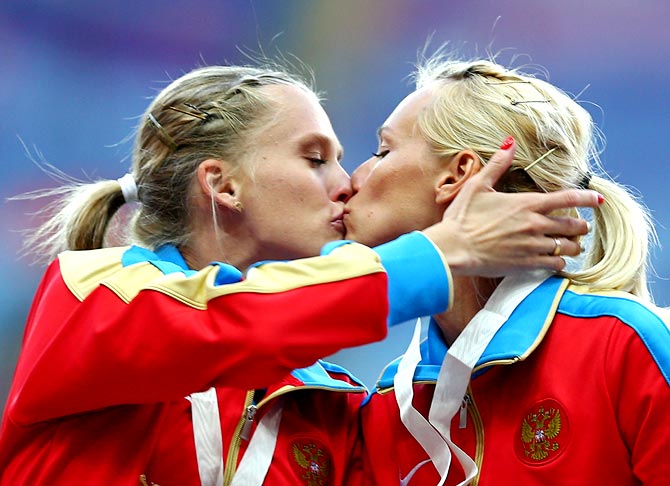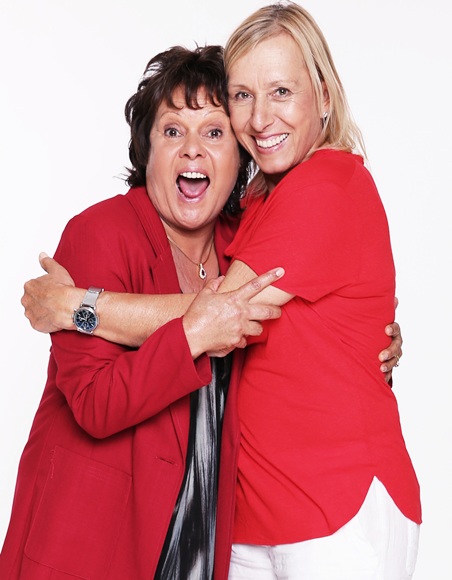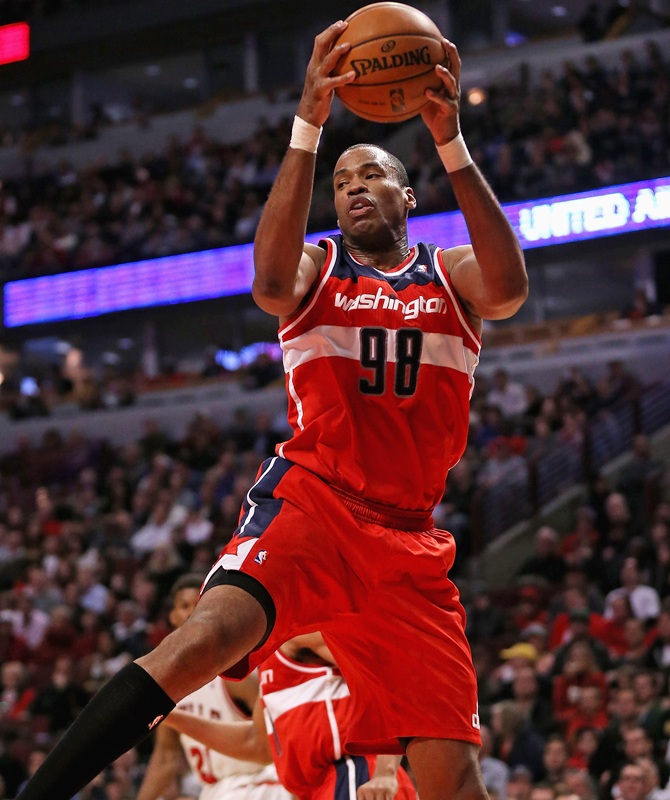
Tennis star Martina Navratilova and US basketball player Jason Collins said on Tuesday the International Olympic Committee has not done enough to defend the rights of gay athletes ahead of the 2014 Winter Olympics in Sochi, Russia.
-Podium kiss was not meant to back gay rights, says Russian athlete
Russia triggered angry criticism and even calls to boycott the Sochi Games when, in June, it banned spreading ‘gay propaganda’ to minors. Critics denounced the law as discriminatory and a curb on rights to free speech and assembly.
Speaking at the United Nations to mark International Human Rights Day, Navratilova and Collins said focus should not just be on the Sochi Games in February and March, but also on the rights of gay Russians and on anti-gay laws in other countries that will play host to global sporting events in the future.

Navratilova, who has become a champion for gay athletes in sport since revealing she was gay in 1981, said she was disappointed with the International Olympic Committee "for really putting their head in the sand" over the Russian law.
"The IOC needs to stand up better for their athletes quite frankly," she told reporters. "It's (also) what happens after, and it's not just one country, it's many countries."
"Nobody is talking about, for example, Qatar, where the World Cup is going to be, homosexual activity is punishable by a jail term there," Navratilova said, referring to the 2022 FIFA World Cup of soccer.
The IOC has said it has received written assurances from the Russian government that the "gay propaganda" law would not affect Games participants and spectators.
Russian President Vladimir Putin said in October that everything was being done "so that participants and guests feel comfortable in Sochi, regardless of nationality, race or sexual orientation." However, gay rights activists have reported a rise of violence toward their community sparked by the new law.

US Ambassador to the United Nations Samantha Power met with international gay rights activists on Tuesday and said the Russian law is "as outrageous as it is dangerous".
"And it is a reminder that whether the struggle for equality takes the form of equal employee benefits or protection from being imprisoned or executed, we have a long way to go," Power said.
"We are well into the 21st century and yet some 78 countries still have laws that criminalize consensual sex between adults. In some countries, the sentence for being gay is still the death penalty," she said.
Collins said sporting bodies such as the International Olympic Committee and soccer's governing body, FIFA, should consider carefully the countries and cities with which they link their brands.
"Do you choose to associate with a country or a people or a government that will oppress and put down their own people?" Collins asked. "You should choose to associate with people who stand for the same ideals that you stand for, which should celebrate sport and athletes to be their true selves."
Collins became the first openly gay active player in North America's four major professional sports leagues - the National Basketball Association, the National Football League, the National Hockey League and Major League Baseball - in April.
Navratilova also pointed out that while the United States has made progress on gay rights, there was still work to be done. "In this country, in 29 states, it is legal to fire someone for being gay," she said.
"We have a tendency to point fingers but we need to clean up our own country first. We're heading in the right direction but still have a long way to go."